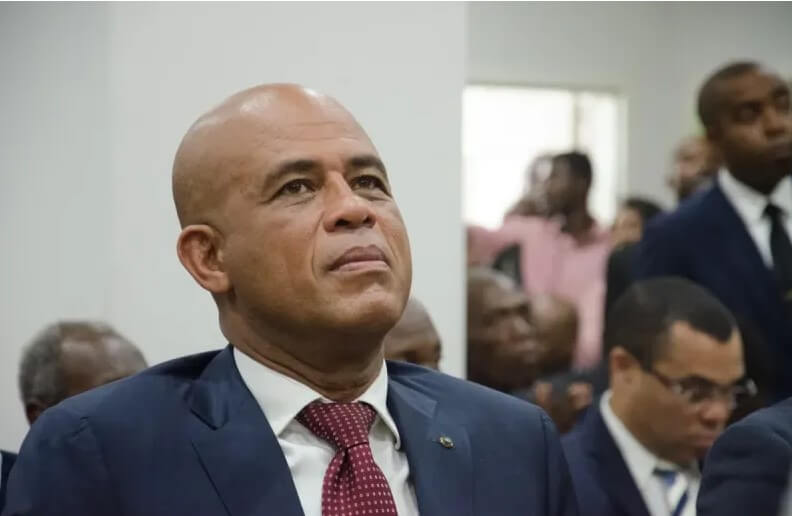Explosive statements from Leslie Voltaire reveal how Michel Martelly’s political strategies contributed to the expansion of gangs in Haiti. During an interview with @TV5MONDE on Wednesday, January 29, 2025, the President of the Transitional Presidential Council, Leslie Voltaire, made shocking allegations, pointing to former President Michel Martelly as a key player in the proliferation of gangs across Haiti.
According to Voltaire, the rise of gangs in Haiti is rooted in dubious political arrangements during Martelly’s presidency. He claims that these armed groups received significant support from the government at the time, particularly through alliances with certain private sector figures.
These partnerships, initially designed to strengthen Martelly’s political grip, soon spiraled out of his control. Voltaire explains that rather than dissolving or remaining under supervision, the gangs gained power, became autonomous, and established their own criminal networks—far beyond the political sphere.
Today, these gangs are engaged in various criminal activities, including drug trafficking, illegal arms trade, and, most disturbingly, organ trafficking. This last revelation has particularly shocked observers, illustrating how these groups have evolved into highly structured criminal organizations of unprecedented scale.
Voltaire emphasizes that these groups, originally created to serve political interests, have now transformed into independent entities with influence extending beyond Haiti to other parts of the world.
Former President Michel Martelly has long faced accusations of corruption and ties to organized crime. Voltaire reminds the public that Martelly is currently under international sanctions, notably from Canada, due to alleged connections with gangs. While these sanctions remain largely symbolic, they send a clear message to the international community about Martelly’s presumed role in destabilizing the country.
Haiti is currently experiencing an unprecedented security crisis, with gangs controlling vast territories and spreading terror among citizens. In the face of this alarming situation, the government’s failure to restore order and ensure public safety remains one of the most pressing challenges for the country.
Leslie Voltaire’s statements could mark a turning point in the fight against gangs in Haiti. His revelations also raise critical questions about the responsibility of both past and present leaders in the country’s current crisis.
By shedding light on the shadowy connections that facilitated the rise of these gangs, Voltaire exposes a lesser-known aspect of Haiti’s political history. His disclosures not only strengthen calls for justice and transparency but also highlight the urgent need for swift action to prevent the situation from worsening further.
During his interview with @TV5MONDE, Leslie Voltaire provided a detailed analysis of the escalating violence in Haiti. He asserted that these armed groups received direct support from Martelly’s regime, as well as financial backing from certain economic players. Initially used to bolster the former president’s authority, these gangs gradually slipped out of control and expanded their criminal operations.
Today, their influence extends well beyond politics. According to Voltaire, they are involved in various illicit trades, including drugs, weapons, and even organ trafficking for export.
The President of the Transitional Presidential Council underscores that Michel Martelly is under international sanctions, particularly from Canada, for his alleged links to these criminal organizations. While largely symbolic, these measures represent global recognition of his role in Haiti’s current crisis.
These revelations come amid a growing wave of insecurity. Public opinion remains divided—some see these accusations as a necessary truth, while others view them as political maneuvering.
Undeniably, these disclosures add to an already fragile political and social climate. Meanwhile, gangs continue expanding their territorial control, leaving the Haitian population in an increasingly vulnerable state.

